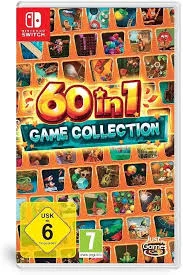
Nintendo Switch: From Wii U’s Unfulfilled Promise to Gaming Phenomenon and Beyond
The Nintendo Switch stands on the verge of becoming Nintendo's all-time bestselling hardware, a testament to its seamless transition between home console and handheld device. Its success is so profound that the anticipated Switch 2 isn't radically different, but rather a refinement of concepts Nintendo has been developing since the days of the Wii U – and perhaps even earlier.
While the Switch soars with over 150 million units sold, the Wii U is remembered as a commercial disappointment, selling a mere 13.56 million units. However, the Wii U served as a crucial stepping stone, pioneering ideas that were remarkably ahead of their time. The Wii U bravely experimented with hybrid play, allowing gamers to enjoy titles on their TVs or take them on the go with its tablet controller. This concept has evolved into a full-fledged category of gaming hardware, inspiring devices like the PlayStation Portal and Steam Deck. Even Xbox is now exploring the handheld gaming market.

The Wii U wasn't without its limitations. Its range was restricted, forcing players to stay relatively close to the console, and its battery life left something to be desired. The Switch addressed these issues head-on. Instead of beaming a game to a tablet from a TV-connected console, the Switch operated as a tablet that could effortlessly connect to a TV via its seamless dock.
Many of the Switch's defining titles started on the Wii U. Mario Kart 8 Deluxe, the Switch's top-selling game, originated as Mario Kart 8 for the Wii U. The Legend of Zelda: Breath of the Wild was initially planned as a Wii U exclusive before Nintendo broadened its release to include the Switch. Splatoon and Super Mario Maker also made their debuts on the Wii U before finding even greater success on the Switch. Beloved Wii U games like Donkey Kong Country: Tropical Freeze, Super Mario 3D World, Pikmin 3, and Xenoblade Chronicles X were also revitalized on the Switch.
The Switch 2 aims to continue this legacy by offering backward compatibility with the vast majority of Switch games. The enduring impact of the Switch is also deeply personal. As one journalist reflected, the Switch provided precious moments for gaming amidst the chaos of early parenthood. Games like Breath of the Wild, Splatoon, and Animal Crossing: New Horizons became oases of connection and stress relief during challenging times.
Shigeru Miyamoto, the creator of Mario and Zelda, hinted at the Wii U's potential in a 2016 interview, expressing hope that people would eventually recognize the seeds of innovation Nintendo planted with the console.
What does the future hold for the Nintendo Switch and its successor? Will Nintendo continue to innovate and redefine the gaming landscape? Share your thoughts and memories of the Switch in the comments below!